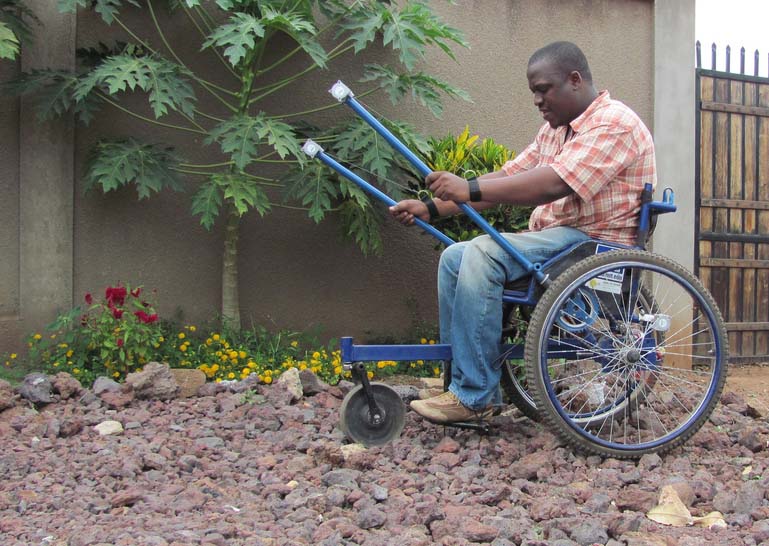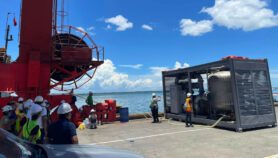By: Richa Malhotra
Send to a friend
The details you provide on this page will not be used to send unsolicited email, and will not be sold to a 3rd party. See privacy policy.
Technological solutions such as a low-cost prosthetic knee and an all-terrain wheelchair are among the inventions shortlisted for an award funded by a charitable arm of German engineering and electronics giant Siemens.
The 23 low-tech innovations shortlisted for the Empowering People Award for their potential to improve the lives of people in developing countries were unveiled last month (16 September). The winners will be announced next week.
The first call for entries to the award was made in June 2012 at the UN Conference on Sustainable Development (Rio+20) in Brazil.
Following this, Siemens Stiftung (which translates as the Siemens Foundation), received more than 800 entries from 90 countries that aimed to address problems mainly in the energy, agriculture, water and health sectors.
This was more than it had expected and the volume of entries resulted in the announcement of the shortlist being delayed. “We had international expert [judges] and they needed a lot of time to go through all the material and all the aspects of voting,” says Rolf Huber, the foundation’s managing director.
The aim of the award, Huber says, is to find “simple technologies that could help and support communities”.
All-terrain wheelchair
One shortlisted technology is the Leveraged Freedom Chair, a wheelchair designed to be used on rough terrain.
Unlike a traditional wheelchair, which users move by directly rotating the wheels, the new chair is operated using long metal rods attached to the wheels using a drivetrain. These levers give more rotational force, enabling users to manoeuvre over obstacles.
Mario Bollini, chief technology officer at US firm Global Research Innovation and Technology, who designed the wheelchair, tells SciDev.Net that users can cover long distances over difficult terrain using the chair.
The wheelchair is made from bicycle components so it can be easily fixed at any cycle shop. Pilot tests were conducted in the Indian state of Rajasthan.
According to Bollini, the wheelchair — which is now on sale at US$250 — will last around five years. He says standard wheelchairs typically last only six months in developing countries.
An affordable prosthetic knee
ReMotion Knee, another shortlisted technology, is an affordable prosthetic knee joint developed by students at Stanford University, United States. It is designed to allow amputees to kneel or squat, enabling them to farm more easily, for instance.
The prosthesis is undergoing clinical trials in Guatemala, India and Indonesia.
Vinesh Narayan, product manager at D-Rev, a non-profit company that now owns ReMotion Knee, says: “We are projecting a final retail price of about US$80 and the goal is to get it to the market in late 2014".
The winners of the award will be announced at a ceremony to be held in Nairobi, Kenya, on 30 October. Prize money of €100,000 (nearly US$137,000) will be split between three winners. The remaining 20 shortlisted innovators will each receive €5,000 (more than US$6,800).
Networking is for winners
But Huber says the Nairobi event is “not just a chance to attend a nice ceremony”, but also an opportunity for the finalists to network and develop their ideas. The winners will also attend a workshop to help further their business plans. Huber says the organisers may also offer the winners longer-term support depending on how serious they are about their innovations during the workshops.
A separate community prize will be given to the technology that comes top in an online vote open to the general public that ends today. Huber says this strand of the prize was an effort to "involve the community of people who are following [the projects] and are engaged and active in the field”.
The winning team will be able to choose €3,000 (around US$4,100) worth of equipment for their project.
Dorothea Ringe, a member of the judging panel for the awards, tells SciDev.Net that the criteria used for selection include the “smartness of the technological solution and its social impact, business potential in developing countries and environmental effects”.














